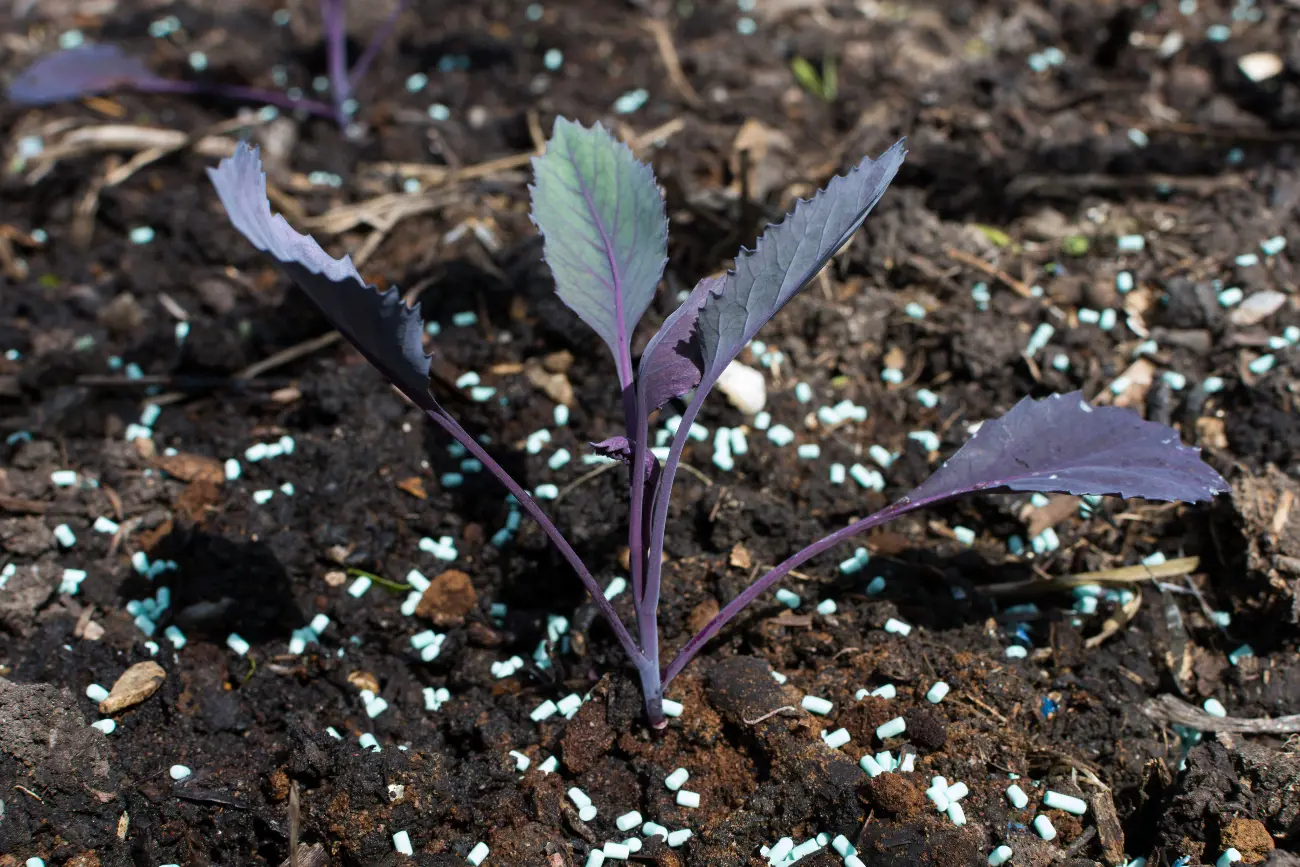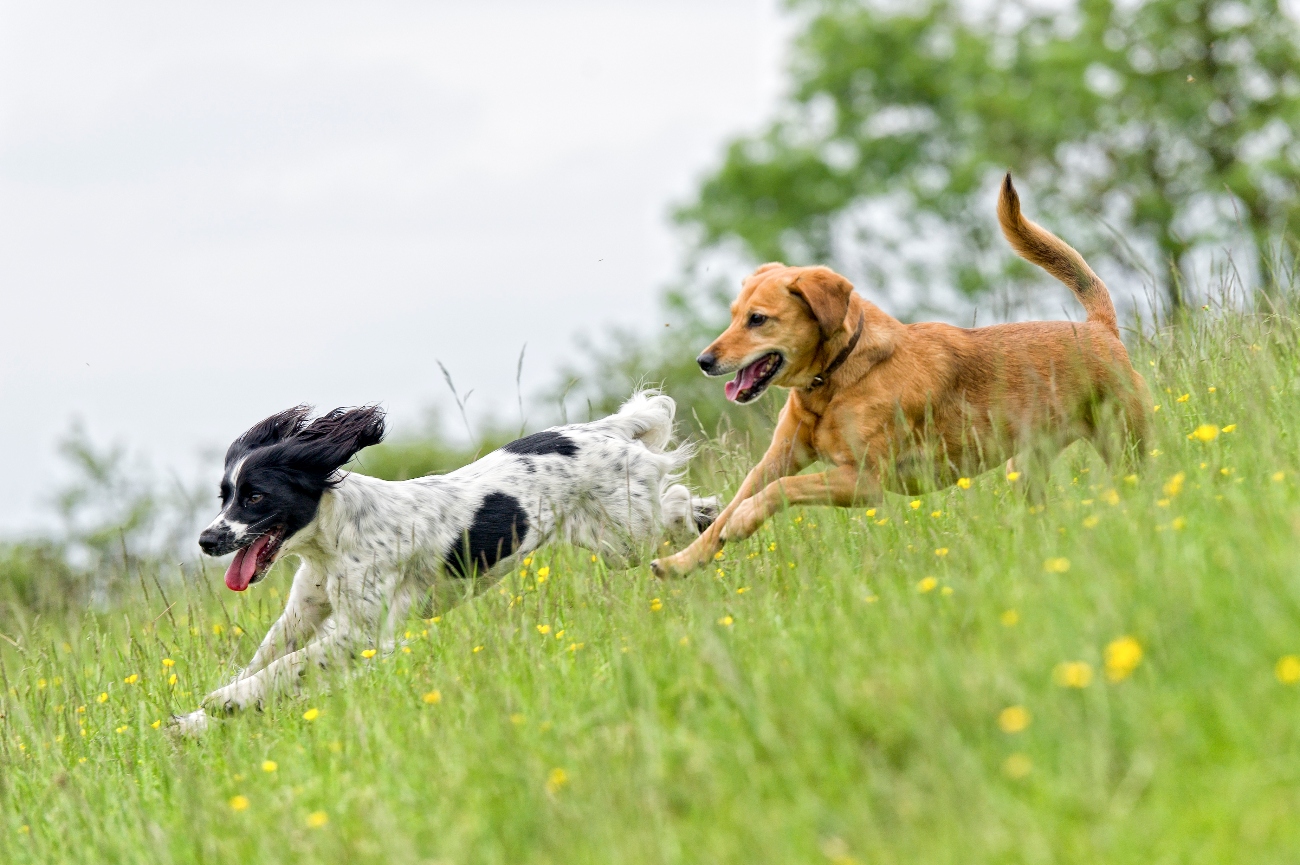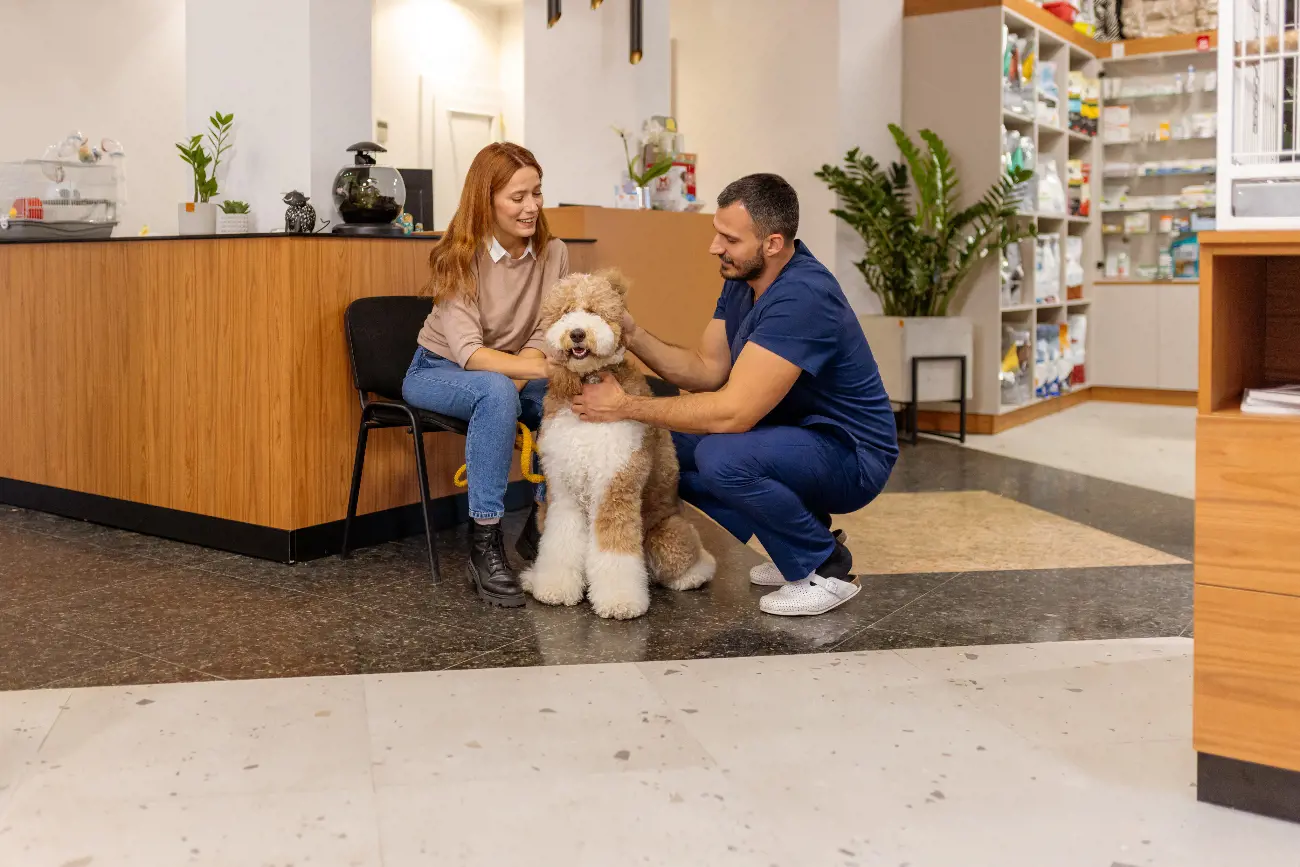To prevent accidental poisoning, avoid using metaldehyde products in areas accessible to your dog. Store all garden products securely out of reach. When walking your dog, supervise them closely and clean their paws afterwards to remove any potential residues. Training your dog to respond to commands like "leave it" can also help discourage them from picking up harmful items outdoors.
Are slug pellets harmful to dogs?
8th August, 2025

Slug pellets and dogs form a potentially deadly combination that many garden owners aren’t fully aware of. In addition to slug pellets, other garden pest control products such as snail baits, and various baits designed to control slugs and snails—including those targeting the snail—also pose significant risks to dogs and other pets.
Even just a couple of these common garden products can cause severe illness or death in your beloved pet. Slug pellets are extremely dangerous to dogs, with metaldehyde poisoning ranking as the 6th most common poisoning reported to the Veterinary Poisons Information Service, resulting in approximately 2,309 enquiries to date in all time.
What makes these garden products particularly hazardous is how quickly they affect your dog. Signs of poisoning generally appear within minutes to three hours after ingestion, with some dogs losing the use of their legs within just 30 minutes of exposure. The symptoms are alarmingly severe – from in-coordination and tremors to convulsions – creating what veterinarians call a “shake and bake” effect due to the severe tremors and elevated body temperature.
If your dog has access to your garden, understanding this hidden danger is important, as is having dog insurance to cover emergency veterinary treatment that often results in days of hospitalisation.
Why slug pellets are dangerous to dogs
The chemical metaldehyde found in most slug pellets is extremely toxic to your dog. Slug pellets and related baits are commonly used by gardeners to control slugs and snails, but their toxicity and poisonous nature can kill not only slugs but also animals such as dogs, cats, birds, and other wildlife, as well as pose risks to human health.
This common garden pesticide ranks as the 6th most common poisoning reported to the Veterinary Poisons Information Service. Unfortunately, despite their danger, these pellets are widely used in coastal and low-lying areas where slugs and snails are persistent garden pests.
What makes slug pellets especially hazardous is their formulation. Many commercial products contain metaldehyde at concentrations between 3-8% by weight. These pellets are typically flavoured with molasses or bran to attract slugs, but these same ingredients make them irresistible to curious dogs. The pellets often resemble kibbled dog food, creating a dangerous confusion for your pet.
Even minimal exposure can be deadly. Less than a teaspoon of bait containing metaldehyde can be toxic to your pet and may be fatal without treatment. For a 30kg Labrador, consuming just 20g of pellets (about four teaspoonfuls) with 8% metaldehyde concentration could prove lethal.
Once ingested, metaldehyde undergoes partial hydrolysis in the stomach to produce acetaldehyde. Both chemicals are readily absorbed from the digestive tract, subsequently affecting the nervous system. This results in the characteristic “shake and bake” syndrome – severe muscle tremors and alarmingly elevated body temperature.
Furthermore, dogs who survive the initial poisoning may still develop liver failure approximately two to three days after exposure. Consequently, having comprehensive dog insurance that covers emergency treatment and extended hospitalisation is essential, as treatment often requires several days of intensive care.
While metaldehyde-based products are dangerous, alternatives exist. Slug pellets containing iron III phosphate are gentler on pets. These are classified as non-hazardous when used properly and are approved for organic farming.
Many gardeners now prefer non-chemical methods to protect both pets and wildlife. However, all slug control products should be stored securely away from pets, as even safer alternatives can cause illness if consumed in large quantities.
Recognising and responding to poisoning
Recognising the symptoms of slug pellet poisoning in your dog quickly can mean the difference between life and death. The toxic effects of metaldehyde appear remarkably fast—usually within 30 minutes to three hours after ingestion.
This rapid onset gives you a narrow window for life-saving intervention. These observable symptoms are known as clinical signs, and recognising them early is crucial. Not only dogs, but other animals and wildlife can also be affected by these toxins.
Initially, you might notice your dog exhibiting anxiety, excessive drooling, vomiting, or diarrhoea. These early warning signs should never be ignored, particularly if you use slug pellets in your garden or walk your dog in areas where others might use them. Seizure is another possible clinical sign that may develop as poisoning progresses.
As the poisoning progresses, symptoms become more severe. Your dog may develop muscle tremors, an uncoordinated gait, or excessive panting. The condition quickly escalates to what veterinarians describe as “shake and bake” syndrome—characterised by severe tremors or seizures accompanied by dangerously high body temperature. Without immediate treatment, your dog could suffer respiratory failure and death. Some dogs that survive the initial poisoning may develop liver failure two to three days afterwards.
Should you suspect your dog has consumed slug pellets—even in small amounts—contact your veterinarian immediately. This is considered a genuine emergency, as less than a teaspoonful can be lethal. Even suspected poisoning cases should be treated as emergencies. Never wait to see if symptoms improve, as survival rates drop dramatically with delayed treatment.
At the veterinary clinic, treatment typically involves decontamination procedures such as induced vomiting (if ingestion was recent) or gastric lavage under anaesthesia. The vet may induce your dog to vomit to remove toxins from the digestive system, and may also analyse stomach contents to confirm exposure.
Diagnosis may involve analysis of blood, stomach contents, and a complete blood count to assess the dog's condition and confirm poisoning. The veterinarian may administer activated charcoal to reduce toxin absorption and provide intensive supportive care including IV fluids, medications to control seizures, and cooling measures.
Veterinary professionals treat poisoning cases with a combination of decontamination, supportive care, and symptom management, as there is no specific antidote. Contacting a pet poison helpline or some insurers like Purely Pets include 24/7 vet advice through Joii, can provide immediate advice and guidance in these situations.
To get a dog insurance quote for your beloved pet, you can get a quote through our website. If you would like to talk to one of our dog insurance team, you can get in touch with us on 0330 102 5748. Having insurance is important for covering these unexpected emergencies that often require several days of intensive care.
With prompt veterinary intervention, many dogs achieve recovery within 2-3 days. Nevertheless, survival rates vary widely—potentially as low as 25-50% without fast treatment, improving to 70-80% with immediate care. Remember, there is no specific antidote for metaldehyde poisoning; therefore, rapid recognition and response remain your dog’s best chance for survival.
How to prevent accidental poisoning
Preventing your dog from accessing slug pellets is far easier than dealing with the aftermath of poisoning. Metaldehyde-based slug pellets remain extremely dangerous to dogs even in small quantities, with ingestion potentially proving fatal. Moreover, comprehensive dog insurance that covers emergency treatment is essential, as treatment often requires several days of intensive care.
First and foremost, avoid using metaldehyde products in any areas accessible to your pets. These traditional slug pellets can be lethal even in small amounts, as they’re often formulated to resemble dry pet food and contain molasses that makes them irresistible to curious dogs. Instead, consider pet-friendly alternatives:
-
Products containing ferric phosphate (iron phosphate) are considered safer for pets and wildlife
-
Natural wool pellets like Slug Gone offer a non-hazardous alternative
-
Organic-certified slug control products that work effectively without harming pets
For those times when you must use slug control products, proper storage is crucial. Store all pellets in closed containers out of reach from both children and pets. Always handle and store these products in such a way that pets and children cannot access them.
In fact, many poisonings occur when pets access improperly stored products in the home. As a matter of fact, there are numerous chemical-free methods to deter slugs from your garden:
-
Place lava rock, broken shells or copper bands around plants
-
Plant natural repellents like lavender, mint or rosemary
-
Use shallow cans of beer to attract and drown slugs (ensure pets cannot access)
Above all, train your dog with commands like “leave it” or “no” to discourage them from picking up items outdoors. Similarly, supervise your canine companion during walks and thoroughly wipe down their paws afterwards to remove any potentially toxic residues.
Should your dog exhibit any symptoms of slug pellet poisoning—including drooling, panting or seizures—contact your veterinarian immediately. With dog insurance in place, you can focus on getting prompt treatment rather than worrying about costs during this emergency.
Conclusion

Slug pellets unquestionably represent a severe and potentially fatal hazard to your four-legged companion. Throughout this article, we've seen how even minimal exposure to metaldehyde-based products can trigger life-threatening symptoms within minutes. Therefore, vigilance remains your best defence against this hidden garden danger.
First and foremost, prevention should be your priority—switching to pet-friendly alternatives like ferric phosphate products or natural deterrents essentially eliminates this risk altogether. Nevertheless, accidents can still happen, especially during walks in public parks or neighbouring gardens where others might use these toxic pellets.
Recognising the early warning signs of poisoning—such as excessive drooling, anxiety, or uncoordinated movement—allows you to act quickly. During such emergencies, time is undeniably critical, with survival rates dramatically improving when treatment begins promptly.
To get a dog insurance quote for your beloved pet, you can get a quote through our website. If you would like to talk to one of our dog insurance team, you can get in touch with us on 0330 102 5748.
Last but certainly not least, comprehensive dog insurance provides vital financial protection against unexpected veterinary bills that often run into hundreds or thousands of pounds. Although we hope your dog never faces slug pellet poisoning, being prepared with both knowledge and appropriate insurance coverage ensures you can focus entirely on your pet's recovery rather than treatment costs.
Your garden should be a safe haven for all family members—including those with four paws. By taking the precautions outlined in this article, you can effectively balance garden maintenance with your dog's well-being, ensuring many more years of joyful companionship.
Frequently asked questions
Slug pellets containing metaldehyde are extremely toxic to dogs. Even a small amount can cause severe poisoning, leading to symptoms like tremors, seizures, and elevated body temperature. In some cases, it can be fatal if not treated promptly.
Symptoms of slug pellet poisoning typically appear within minutes to three hours after ingestion. Some dogs may lose the use of their legs within just 30 minutes of exposure, making it crucial to seek immediate veterinary care.
If you suspect your dog has ingested slug pellets, contact your veterinarian immediately. This is considered an emergency, and prompt treatment is essential for the best chance of recovery. Do not wait to see if symptoms improve, as survival rates decrease with delayed treatment.
Yes, there are pet-friendly alternatives to metaldehyde-based slug pellets. Products containing iron phosphate are considered safer for pets and wildlife. Natural deterrents like lava rock, copper bands, or plants such as lavender and mint can also be effective in controlling slugs without posing a risk to your dog.
Helpful Pages
Recent Posts

How to groom your cat properly
09/01/26Pet Insurance Quote
- 98% claims paid *
- Claims paid directly to vets
- 24/7 vet video consultations
- Interest free monthly payments



